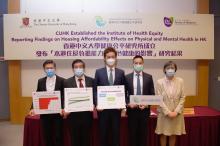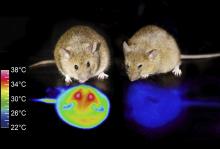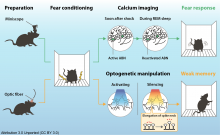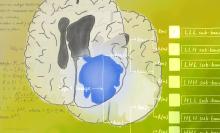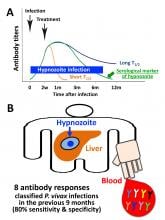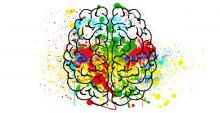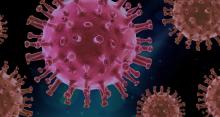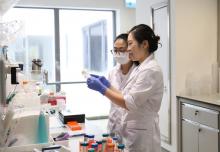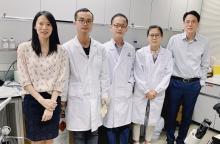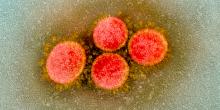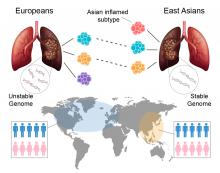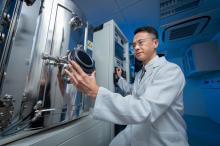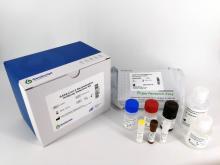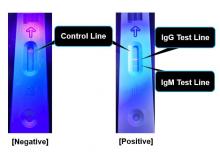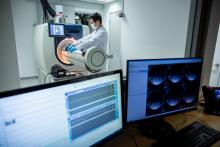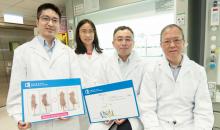Medicine & Healthcare
News
19 Jun 2020
The newly established Institute of Health Equity of The Chinese University of Hong Kong (CUHK) has collaborated with the Jockey Club School of Public Health and Primary Care of the Faculty of Medicine at CUHK in a study which investigates the effects of housing affordability on physical and mental health in Hong Kong. The findings show that unaffordable housing worsens the physical and mental health of Hong Kong people, and the relative deprivation of necessities has a mediating role between housing affordability and health. It is the first “health equity” study of its kind in Asia and the results were published in the Journal of Epidemiology and Community Health.
19 Jun 2020
The Faculty of Medicine at The Chinese University of Hong Kong (CU Medicine) has recently conducted a global survey to examine the impact of the COVID-19 pandemic on urological care. This is the world’s first survey of its kind and includes a large sample of urology professionals from 6 continents. Results from over 1,000 participants showed that on average 28% of urology outpatient clinics, 30% of outpatient investigations and procedures, and 31% of urological surgeries had a delay of more than 8 weeks. The degree of cut-down of urological services increased with the degree of COVID-19 outbreak.
19 Jun 2020
Have you ever thought about why some people are more vulnerable to catching a virus? And why some get more severe infection than others? Gut microbiota, which is a fine balance between good and bad bacteria, regulates our immune system. Imbalance in gut microbiota (dysbiosis) will make us susceptible to infections.
18 Jun 2020
* CAREhab 2020 in conjunction with 6th Singapore Rehabilitation Conference to
take place virtually via tech-enabled CAREhab GO platform live on 10-11 July
* Delegates to have full access to digital library of video content and exhibition
showcase in their own time from 10 July 2020 to February 2021, meeting
convenient learning needs
12 Jun 2020
COVID19 is teaching us several new lessons and also preaching us to learn from the past experiences.
12 Jun 2020
Researchers at the University of Tsukuba and RIKEN in Japan spark a hibernation-like state in mice—a species that does not naturally hibernate
04 Jun 2020
Researchers from University of Tsukuba and the University of Tokyo identify neurons responsible for memory consolidation during REM sleep
03 Jun 2020
A highly accurate machine learning tool could help doctors tailor individualized treatments for people with glioma brain tumours.
29 May 2020
An international collaborative team from PROS Ehime University and CellFee Science, Japan; the Walter and Eliza Hall Institute, Australia; Pasteur Institute, France; and Foundation for Innovative New Diagnostics, Switzerland developed a new diagnostic blood test which detects recent exposure to ‘vivax’ malaria. The new test can also identify people who may harbor dormant liver-stage malaria parasites, which can cause illness. This new diagnostic approach has the potential to enhance malaria surveillance and accelerate elimination.
28 May 2020
A team of scientists and researchers from A*STAR’s Singapore Immunology Network and Jinan University, Guangzhou, have deciphered human embryonic immune cell development and discovered how the earliest macrophages in humans, a type of white blood cell of the immune system, stems from a distinct embryonic source and not the bone marrow.
28 May 2020
An adenovirus is now better able to target and kill cancer cells due to the addition of an RNA stabilizing element.
27 May 2020
A team of young researchers led by Professor JIANG Yangzi, Research Assistant Professor at the Institute for Tissue Engineering and Regenerative Medicine (iTERM) and the School of Biomedical Sciences (SBS) at The Chinese University of Hong Kong (CUHK), has recently been granted funding from the National Key Research and Development (R&D) Programme. It is the first team in Hong Kong to receive national-level, cross-border research funding under the “Young Scientist Scheme” of the Programme. The team has been awarded a research grant of RMB 5.45 million (approximately HKD 6 million) for basic and preclinical research on the pathogenesis of osteoarthritis.
26 May 2020
Scratching the head or rubbing the hands repeatedly is common, unconscious behaviour when people are facing stress. Neuroscientists from the School of Biomedical Sciences and the Gerald Choa Neuroscience Centre of the Faculty of Medicine at The Chinese University of Hong Kong (CU Medicine) have discovered a mammalian brain circuitry underlying our ability to generate adaptive responses when facing stress with strong negative emotions. The result of the study was recently published in the renowned international scientific journal Nature Communications.
26 May 2020
The weak performance of Hong Kong children in age-appropriate tests of theory of mind (ToM) has been well documented. The awareness of mental states, such as the thoughts, wants, motives and feelings of others, and the realisation that these may differ from our own are vital for social interaction and can affect learning. Therefore, the delay in acquiring this social-cognitive skill is worrying and raises questions: What are the factors that affect the pace of reaching these developmental milestones, and can children catch up?
22 May 2020
Researchers from the School of Life Sciences at The Chinese University of Hong Kong (CUHK) and Japanese research teams have constructed a high-resolution chromosome-scale full genome sequence assembly of an American Shorthair domestic cat (AnAms1.0). By incorporating data from multiple advanced genomic technologies, this genome assembly has a much improved quality over the currently available reference. This research will drive forward precision veterinary medicine to provide the most suitable treatments based on individual differences predicted from genomic information.
20 May 2020
Research into how the SARS-CoV-2 virus induces death is suggesting potential treatments for its most destructive complications.
19 May 2020
New data on East Asian populations will guide researchers and clinicians to develop novel therapeutic strategies tailored to individual lung cancer patients.
19 May 2020
A recent study conducted by the Faculty of Medicine at The Chinese University of Hong Kong (CU Medicine) discovered a novel genetic biomarker which can predict the survival of head and neck cancer patients. There are over 0.7 million new head and neck squamous cell carcinoma (HNSCC) cases globally each year. However, currently there is no clinical implementation of any genetic biomarker to predict outcomes for these patients after standard treatment. A study led by Professor Vivian Wai Yan LUI, an expert in genomic medicine and Associate Professor of the School of Biomedical Sciences at CU Medicine, and her research team, has identified that mitogen activated protein kinase (MAPK) pathway mutations found in almost 20% of HNSCC patients can predict favourable clinical outcomes with standard therapy. Their survival also doubled when compared with other patients. The finding has just been published in the journal Life Science Alliance.
19 May 2020
Scientists from Hong Kong Baptist University (HKBU) have developed a novel technique that can produce pure therapeutic drugs without the associated side effects.
19 May 2020
Scientists say some myelin-damaging disorders have a distinctive pathology that groups them into a unique disease entity.
18 May 2020
Professor Tony MOK from the Faculty of Medicine of The Chinese University of Hong Kong (CU Medicine) and Professor LU You from West China School of Medicine at The Sichuan University co-led the world’s first-in-human Phase I clinical trial investigating the safety and feasibility of CRISPR gene-edit therapy as a treatment option for patients with late stage lung cancer. Research team recruited 22 advanced Non-small-cell lung carcinoma (NSCLC) patients and isolate the T cell (a form of white blood cell) from peripheral blood. After gene-editing by CRISPR, the T cells that were reinfused back to patient may have the ability to attack cancer cell. Objective of the study is to demonstrate safety and feasibility. Results demonstrated CRISPR technology is safe and feasible as patients showed no severe adverse events and the frequency of off-target events was only 0.05%. This opens a new chapter in the history of lung cancer immunotherapy. The findings were recently published on-line in the international medical journal Nature Medicine.
16 May 2020
Thursday, 21 May 2020, 4:00 PM (GMT +8)
15 May 2020
As a first-in-the-world "rapid smart test kit", the cPass™ which can measure neutralising antibodies in an hour will be a huge boost to current COVID-19 investigations, from contact tracing, sero-prevalence survey, and assessment of herd immunity, longevity of protective immunity and efficacy of different vaccine candidates.
15 May 2020
Japanese 'bone engineers' have developed a bone-substitute biomaterial used in dental grafts that reduces the need for harvesting bone from the patient's own body.
15 May 2020
The newly developed rapid testing kit detects COVID-19 antibodies, requiring only micro-liter volume of serum and 15 minutes of time for achieving results.
13 May 2020
Diagnosis of Alzheimer's disease, the most common type of dementia, is not easy for its overlapping signs with normal ageing. A collaborative research by City University of Hong Kong (CityU) and Johns Hopkins University has developed a new non-invasive molecular imaging approach based on Magnetic Resonance Imaging (MRI) to dynamically measure glucose level changes in the brain lymphatic system. Their discovery may help in identifying Alzheimer's disease at early stages so that treatments can start as soon as possible.
11 May 2020
A research team led by Hong Kong Baptist University (HKBU) has developed a novel anti-Epstein-Barr virus (EBV) drug that can selectively disrupt a viral protein produced by EBV, leading to the shrinkage of tumours caused by the virus. It is the first known agent to successfully target the virus and disturb its latency in tumour cells in this way.
08 May 2020
When the master regulator of protein production malfunctions, it may contribute to the development of neuronal diseases such as Alzheimer's and Huntington's.
30 Apr 2020
A study presenting evidence for the presence of SARS-CoV-2 RNA in the air is published in Nature.

30 Apr 2020
The UK today confirmed that it will be the largest supporter of the international alliance to vaccinate children against deadly diseases, saving millions of lives.
Events
Sorry, nothing coming up for this discipline
- « first
- ‹ previous
- 1
- 2
- 3
Researchers
Sorry, nothing coming up for this discipline
- « first
- ‹ previous
- 1
- 2
- 3
Giants in history
Sorry, nothing coming up for this discipline


